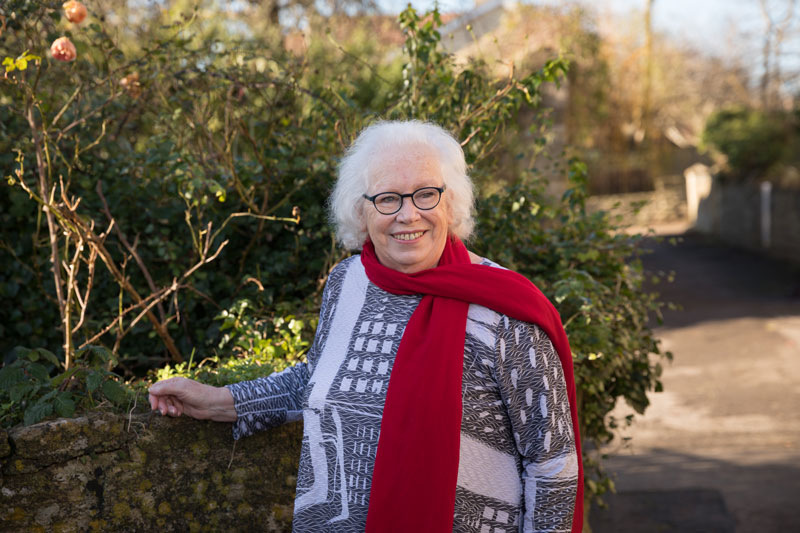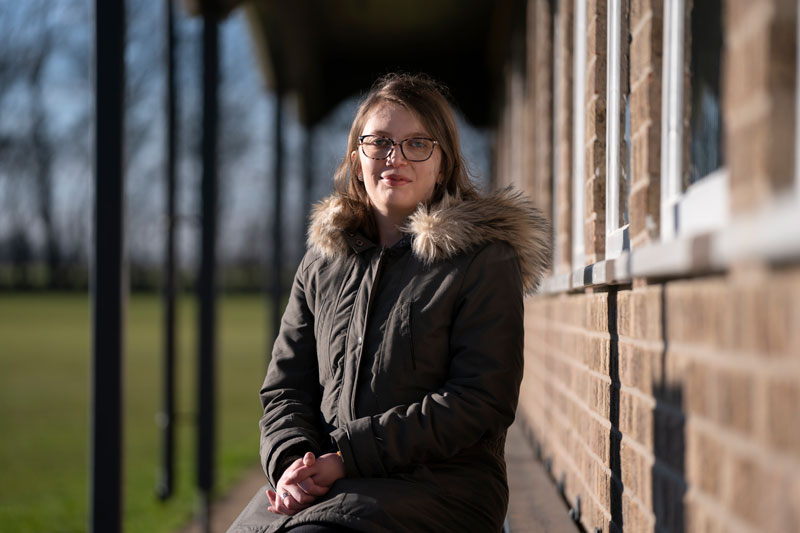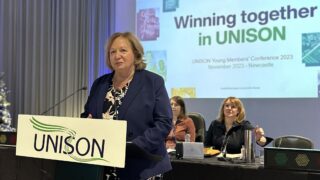With its diverse membership structure, UNISON has members across the age spectrum – from young people at the outset of their careers, to those who have retired but with needs beyond the workplace that the union can still meet.
We met with Rosie MacGregor, chair of UNISON’s retired members’ committee, and Jess McGuire, chair of UNISON’s young members’ committee, to talk about these very different members facing very different challenges.
Thanks for taking the time to talk to us. Let’s start with a little bit about you. When did you join UNISON, and what do you do?
Rosie: Oh, that would be way back in the 1970s, when it was NALGO. When I first joined, I was working for Avon County Council in Bristol, but after that I went to work in Wiltshire for a small district authority, eventually becoming a team leader in the town planning department. But I’m retired now.
Jess: I was 18 or 19, when I first started working as an apprentice in the post room, about six years ago. I didn’t really have any idea about what a union was, but my dad said, ‘You need to join them.’ I’m a finance officer at Lincolnshire Country Council now.
And what made you become active?
Rosie: I was always fairly active, but Wiltshire is where I became a branch secretary. It was very different from working in a big city like Bristol and I kept saying, ‘We wouldn’t do things like that in Bristol,’ or, ‘We wouldn’t do that in Avon’. So, in time, I came to be known as ‘the Avon lady’.
Jess: I wasn’t active when I first joined, but I needed some help with some issues I had when I was an apprentice, and once the union had helped me through that, they asked if I would like to become the young member’s officer for the branch. I said yes, because I didn’t want any other young members to feel the way that I had felt.

Rosie MacGregor © Ralph Hodgson
What are the big issues for retired and young members at the moment?
Rosie: I think loneliness is one of the biggest problems, especially for retired members who are living alone. Obviously, that’s a difficult issue to combat, especially for a trade union which is naturally so centred around workplaces. I wish we could do more.
On that note, the potential loss of pensioner benefits is a big issue. We’ve already lost the free TV licence for the over 75s. Imagine, you live alone and the only time you hear a human voice is from the TV or the radio – and don’t forget the licence covers the radio as well. If you cannot afford it, you will be lost.
Now we’re losing the triple lock, and fuel prices and inflation are rocketing. When you’re older, you’re more vulnerable to the cold and, in the past, many pensioners have had to choose between putting food on their table or heating their home. That situation is only going to get worse.
Jess: Homeworking during COVID has been a really big issue for young people. For many, their home has become their workplace as well, and there is barely any separation. People should be able to disconnect when they want to, without feeling bad about it.
It particularly affects young people as they’re more likely to be in shared accommodation or in flats, so, they might not have any sort of office at home, they might just be working from their sofa or their bedroom, which means it’s more likely to have an effect on their mental and physical health.
Obviously, climate change has also been a big issue recently. COP 26 all seemed a bit pointless, really, especially when you saw people arriving in convoys of 10 cars or on private jets. It just made it seem like a bit of a farce and that it was done more for the media perception than for any real benefit. I think a lot young people got quite angry about that.

Jess McGuire © Jon Super
So why should people continue their UNISON membership into retirement, or join as a young member?
Rosie: Because UNISON seeks to ensure that there is a fairer society for all. Keeping your membership into retirement enables you continue to make your voice heard and influence the issues that specifically affect retired people – whether it’s pensions, health and social care or inclusion in a diverse society.
Furthermore, many people feel isolated in retirement. By staying a member, you continue to feel part of the organisation, and you have the chance to seek help when necessary. You have access to things like welfare through There For You, or legal advice, or any of the more tangible benefits UNISON provides.
Jess: A lot of people say that they join for protection at work and it absolutely is that. But it’s a lot more as well. It’s great for learning and development opportunities – there’s a lot of courses you can do with UNISON that’ll get you more qualifications and boost your skills up to progress your career.
If I wasn’t in a union I wouldn’t have had those opportunities. You also make a lot of good friends if you’re active and there are people I’ve met through the union movement who I know I’ll be friends with for life.
How has the pandemic impacted on your committees over the past two years?
Rosie: It’s been very difficult and there are two very polarised views. There are those members who say we need to have face-to-face meetings, but equally, there are members who are saying we don’t want to meet face-to-face yet and would rather have meetings on a virtual platform.
Of course, it’s not very good for democracy if you’re excluding some of your members from a meeting. But, it’s the same one way or the other – you’d be excluding those who don’t want to meet face-to-face, or you’d be excluding those who can’t do virtual meetings.
Last year, retired members’ conference was held on a virtual platform and I had a lot of retired members contact me saying, ‘There is no way I can attend the conference, because I haven’t got access to computer platforms.’
The fact is that, through austerity, huge amounts of libraries and community centres have closed, these places where you could get access to computers are not available and it disenfranchises older and more vulnerable people.
Jess: It’s been really difficult engaging with young members over the pandemic. It’s just death by zooming. But you can’t meet up physically, so you have to ask: how else are you going to engage? Young people use social media a lot, so that’s been a really good platform, using Twitter and Instagram to make sure we’re getting those messages out there.
However, one thing that went particularly well was UNISON’s first Young Members’ conference, which we managed to hold physically. We had some great speakers – Angela Raynor, among others.
One thing that came out of it was that it encouraged people who had never spoken before, to get up and speak. Hopefully, that will mean we’ll see more young people speaking at conferences. They’ll say to themselves, ‘I spoke at young members’ so, why can’t I speak at Women’s, why can’t I speak at National?’








I’m a retired members how do I stay in unison
Please contact the UNISONdirect call centre on 0800 0 857 857